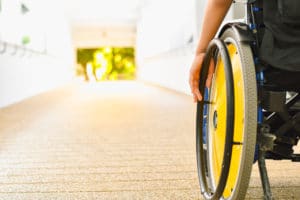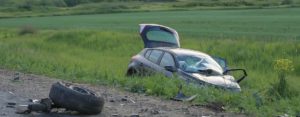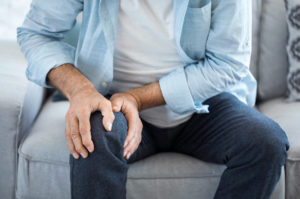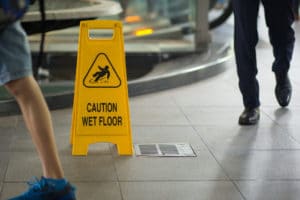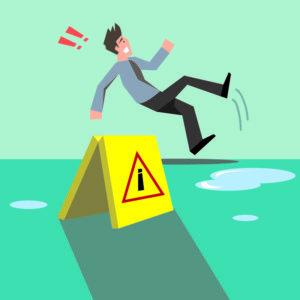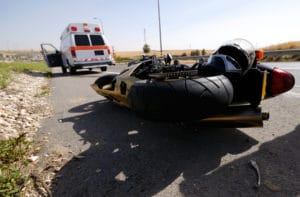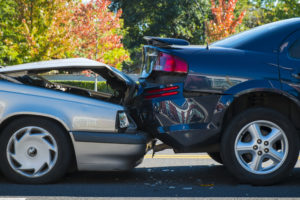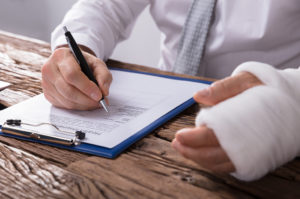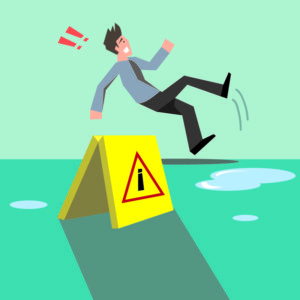Feeling Sad after Car Accident in Nevada?
We have all heard stories of people doing extraordinary things during traumatic events.
For example, the mom who was able to pull a vehicle off her injured child after a crash that had landed the car on the child.
A police officer who rescued several people from a burning vehicle before it blew up.
These amazing feats of nature that someone might not otherwise be able to do are often related to an adrenaline rush after an accident or traumatic event.
Many people that have accomplished these extraordinary feats often say they don’t even remember doing them.
A lot of people involved in traumatic events report the adrenaline rush as well as shock after an accident.
In some cases you may have injuries that could be severe and not even know it. This also contributed to the shock and adrenaline.
But after a while it wears off and you may then realize that you have severe injuries that do actually exist and are also painful.
Another side effect after the adrenaline rush may be the deep low feeling of deep depression and sadness.
Usually with the highs of adrenaline and shock come the deep lows and sadness.
You may not even know why you’re sad to begin with. As an accident victim you may not even consider that it may have something to do with the accident.
You may not feel sad or depressed for some time after the accident.
Eventually traumatic events may catch up with you leaving you sad and with depression or anxiety.
Fear triggers a stress response that can leave you feeling shocked, disoriented, and potentially physically injured, all this can lead to negative emotions like sadness.
Reasons for Emotional Sadness after Accident
There are certain reasons that can be the cause of sadness or depression as a trauma response:
-
Trauma and Shock- Immediately after the accident is when things like shock and trauma take hold. This is also the time when adrenaline kicks in, the sudden nature of the accident can lead to feelings of sadness and disorientation after the shock and adrenaline wear off.
-
Physical Pain- Most people sustain some kind of physical injuries, even if they are minor. Continued physical pain can lead to bouts of depression and sadness.
-
Fear- Accident responses are from fear. Anxiety and fear of getting into another crash may lead to feelings of sadness about driving.
-
Stress of dealing with the aftermath- Being in an accident brings on much unwanted stress that you had not planned on. Now you have to deal with insurance claims, doctors appointments, legal matters, and financial matters that you wouldn’t have had had it not been for the accident.
-
Potential PTSD- The more traumatic the accident the more likely you are to have some PTSD or Post Traumatic Stress Disorder. This can lead to flashbacks, intrusive thoughts, and significant emotional trauma related to the events.

What to do if You’re Sad After an Accident?
Emotional distress or sadness after a car accident should be treated just like a physical injury.
Just like if you broke your arm in an accident you would seek medical attention and have the broken arm treated at the hospital.
If you have sadness or depression treat it just like any other accident injury.
-
Seek medical help immediately no matter how small you think your injuries are. Or if they are emotional injuries then seek help with a professional that treats people with emotional trauma.
-
Ask for help by reaching out- Talk with family and friends, enlist the help of a therapist
-
Consider professional help- Emotional distress like sadness starts to consume your daily life, seek professional help like therapy to manage the emotional impact of the accident.
-
Self Care- Engaging in activities that promote relaxation and well being is something you can do everyday to help against emotional trauma. Yoga, meditation, exercise, and hobbies are a few of the ways to relax and promote self care white recovering from your accident.
Emotional distress and sadness can linger long after all the physical injuries of an accident have healed or faded. Even minor accidents can leave the victim with stress, anxiety, and post traumatic stress and other emotional consequences.
Lawsuit For Emotional distress
Emotional distress or sadness may linger long after your physical injuries heal from a Nevada car accident or any other accident that has an affect on your life.
If emotional distress, sadness or depression is harming your quality of life you may be able to hold the at fault party accountable.
Besides seeking compensation for your medical expenses and other financial losses, The Richard Harris Law firm may also ask for reimbursement for emotional distress and the effects it has left on your quality of life.
Symptoms of Emotional Distress
People experience emotional distress for many reasons at some point in their lives.
After a traumatic event emotional distress and sadness can linger for a long period of time.
For legal purposes emotional distress refers to the emotional trauma that you have suffered because of someone else’s negligence.
After an accident you may experience depression or sadness that you can’t explain, a fear of driving that you have never had before is another example of emotional distress.
These feelings and symptoms can last a long time and have a direct effect on your quality of life.
You may need treatment for your symptoms like therapy and medication to manage your symptoms.
You have the right to seek compensation from the at fault driver to cover the cost of your medical treatment.
The most common symptoms of emotional distress or sadness after an accident are:
-
Unexplained, overwhelming feelings of helplessness or hopelessness
-
Guilty or worrisome feeling for no apparent reasons
-
Failing memory of daily tasks, forgetting to complete these tasks
-
Sleeplessness, insomnia
-
Self medicating with alcohol, prescription drugs, or other illegal drugs
-
Changes in daily life, like appetite, mood, social interactions
-
Physical pain that has no reasoning
Emotional Distress Damages
When filing a claim for compensation there are two types of compensation from an accident.
Economic compensation is the monetary recovery of quantifiable damages like lost wages or medical expenses that have a dollar amount that will cover these expenses.
Non-Economic damages are damages that don’t have a dollar value. Emotional damages can’t be quantified therefore they fall into this category.
Nevada does not limit the amount of non-economic damages except in malpractice cases.
The damages in this case could be much higher than economic damages.
The value of your emotional distress case are based on the following:
-
The severity of the accident
-
The severity of your injuries
-
The evidence that is presented in your favor
-
How long your emotional distress or sadness has lasted
-
The severity of your symptoms of emotional distress
-
Pre-existing mental health conditions
Since emotional distress is something that is not quantifiable the courts use two different ways to calculate what your emotional distress claim is worth.
-
The multiplier method- This takes the value of your economic damages( the compensation you receive for all your measurable losses, such as lost wages and medical expenses and multiplies that number by anything between 1.5 and 5. This gives you the possible total damages you could receive for emotional distress. The court typically uses the higher multiplier for more severe accidents and injuries.
-
The per diem method- This method assigns a dollar value to everyday that you have to live with emotional distress or sadness after an accident. This value is determined by the amount you would have earned from a day’s work.
Prove Emotional Distress
Since emotional distress or sadness from a car accident can’t be quantified with a dollar loss amount (because it does not have a set amount like a medical bill or lost wages from missing work) it is much harder for your attorney to quantify.
It is also much harder to prove since it is subjective.
The court can’t see how you feel, nor can they know what goes on in your head making subjective injuries like PTSD harder to prove.
If you don’t have a physical medical condition it can be even harder to prove.
Your lawyer will use the following types of evidence to prove your case of emotional distress:
-
Records of mental health treatment or therapy
-
Expert testimony from therapists that treated you
-
Medical records that support your medications like depression and anxiety medications
-
Documentation of any missed work or school due to your mental health issues after an accident.
-
Medical records and testimony from medical experts
-
Testimony from family and friends who can speak to your change in behavior since the accident.
-
Entries from journal or diaries documenting your illness and recovery
Most personal injury claims involve physical injuries and other losses.
Contact Richard Harris Law
The choices you make after an accident can have an effect down the road if you don’t make the right choices.
The Richard Harris Law Firm has been representing clients and accident victims for over 40 years in Las Vegas and all of Nevada.
Our team has offices located in Reno and Las Vegas to be able to service our clients in all of Nevada.
Our team of compassionate lawyers will meet with each potential client and discuss the situation and the options for our clients if we can take your case. We will also go over what you can expect going forward at your free consultation.
Our team works on a contingency basis, meaning we take no money up front so you don’t have to worry about that. We only seek compensation for our services when we win your case.
The Richard Harris Law Firm has recovered over 2 Billion Dollars for our clients over the years.




















